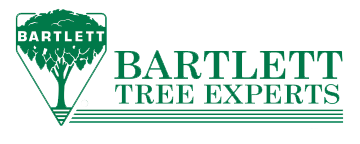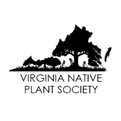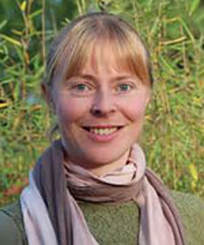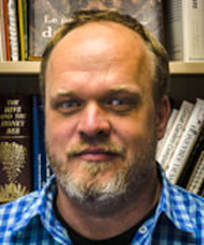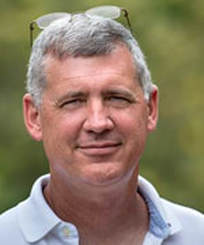Every February the Piedmont Landscape Association hosts an annual seminar. This event strives to bring gardening enthusiasts and landscape professionals together in an educational setting.
LocationThe Paramount Theater
Charlottesville, Virginia RegistrationDue to the high volume of participants and the limited volunteer capacity of our organization, everyone will be directed to register through the Paramount Theater.
Registration may be taken over the phone at 434-979-1333 or online at www.theparamount.net . Items to Note
|
Agenda
Rates
Sponsors |
Speakers
Claudia West
|
Claudia West is the ecological sales manager at North Creek Nurseries, a wholesale perennial grower in Landenberg, PA. Claudia holds a Master’s Degree of Landscape Architecture and Regional Planning from the Technical University of Munich, Germany. In her current role, Claudia works closely with ecological design and restoration professional, offering consultation services from initial project planning stages to adaptive management strategies after project completion. Her work is centered on the development of stable, layered planting designs and the desire to bring American native plants back into our landscape by making them widely acceptable. Claudia is a sought after speaker on topics such as plant community based design and the application of natural color theories to planting design. Together with co-author Thomas Rainer she published a new approach to ecological planting design in her first book ‘Planting in a Post-Wild World’ (Timber Press).
|
Lecture (Morning):
Planting in a Post-Wild World-Creating Resilient and Thriving Landscapes Wild landscapes are disappearing from our planet at an alarming rate. This development negatively impacts the health of our planet and our quality of life. Humans and ecosystems need natural places to thrive. It’s our professional responsibility and privilege to develop and apply planting solutions that bring natural places back to our cities and suburbs. Come see international, successful, resilient planting projects and discuss how alternative planting methods integrate beauty with functional, ecological, and green infrastructure benefits that reduce negative impacts on the planet and our own health. Explore challenges, trends and opportunities to apply successful planting strategies in upcoming projects and contribute your part in creating more resilient landscapes. Lecture (Afternoon):
Designing Plant Communities: The Art and Science of Successful Native Planting Horticulturists and designers today have access to more plant choices than ever before, including native species and their highly attractive cultivars. But awesome plants alone do not automatically translate into great planting. Often well‐intended plantings fail on aesthetic and functional levels or are difficult to maintain with available resources. Arranging perennials in stable compositions continues to be the ultimate challenge. This presentation will delve into the fascinating world of wild plant communities and translate their core principles into practical design and management strategies. Come discover how plants fit together in attractive, resilient, and manageable planting and learn how this method of inter‐planting is evolving into revolutionary new planting strategies you can incorporate into your project designs. |
Dr. Dennis vanEngelsdorp
|
Dennis VanEngelsdorp’s research at The University of Maryland in College Park Maryland, focuses on pollinator health, and honey bee health specifically. He is always interested in encouraging the skills and interests of his students in the bee lab, sharing willingly his own talents. Dr. VanEngelsdorp is particularly intrigued with using an epidemiological approach to understanding and (importantly) improving honey bee health.
Dr. VanEngelsdorp received his Bachelor of Science in Agriculture and Master of Science in Environmental Biology from University of Guelph, Guelph, Ontario, Canada, and his Doctorate of Philosophy from The Pennsylvania State University, University Park, PA. Several years ago, Dr. VanEngelsdorp presented a “Ted talk” and YouTube videos, sharing his concerns on the alarming, worldwide disappearance of worker bees and Western honey bees. Visit: www.vanengelsdorpbeelab.com for more information. |
Lecture (Morning):
To BEE or Not to BEE High levels of loss have been the norm for US beekeepers over the last 10 years. The underlying drivers for these annual losses have been much debated. Here we take a look at what is generally thought of as the three leading contributors to the losses; Varroa mites, pesticides and poor nutrition. The evidence for each will be reviewed and their likely contribution put in context. For instance, the National Honey Bee Disease survey and other survey efforts have documented varroa mite levels and pesticide incidence in the US which allow us to make more informed assessment of the impact of these factors may have on colony health. Evidence for synergistic effects between these factors will also be considered. |
Tony Avent
|
Tony Avent received his Bachelor of Science in Horticultural Science from NCSU. Since 1988, Tony and his wife, Anita have owned Plant Delights Nursery, specializing in rare and unusual perennials, exotic and native plants.
He is an International Plant Explorer, conducting his research in Mexico, China, Korea, Argentina, South Africa, Thailand, Taiwan, Crete, Bosnia, Croatia, Vietnam and many other places including the States. Mr. Avent has received the Perennial Plant Association Award of Merit, and also the J.C. Raulston Distinguished Leadership Award from NC State University and the Perennial Plant Association Retail Award. Plant Delights Nursery and Tony Avent are frequently profiled on television (including The Martha Stewart Show and Almanac Gardener), in magazines (including Southern Living, Horticulture, and Fine Gardening) and in many newspapers. Visit www.plantdelights.com for more information. |
Lecture (Afternoon):
Surround Yourself with Shady Characters As we try to cool the Earth and absorb more CO2, we are planting larger numbers of shade trees. As those trees grow larger, the gardens beneath them become shadier. As this happens, gardeners begin their search for more understory plants. There will always be mainstream plants to fit some of these shady niches, but we also need to embrace botanical diversity by broadening our plant palette. This need coincides with a Victorian‐like explosion of new and exciting native shade garden plants hitting the market, from carex to ferns and from iris to trillium…and so much more. Unique native plants are being propagated that have never been available before, so you’ll be amazed how genera you know have changed and how many plant genera you’ve probably never considered. |


